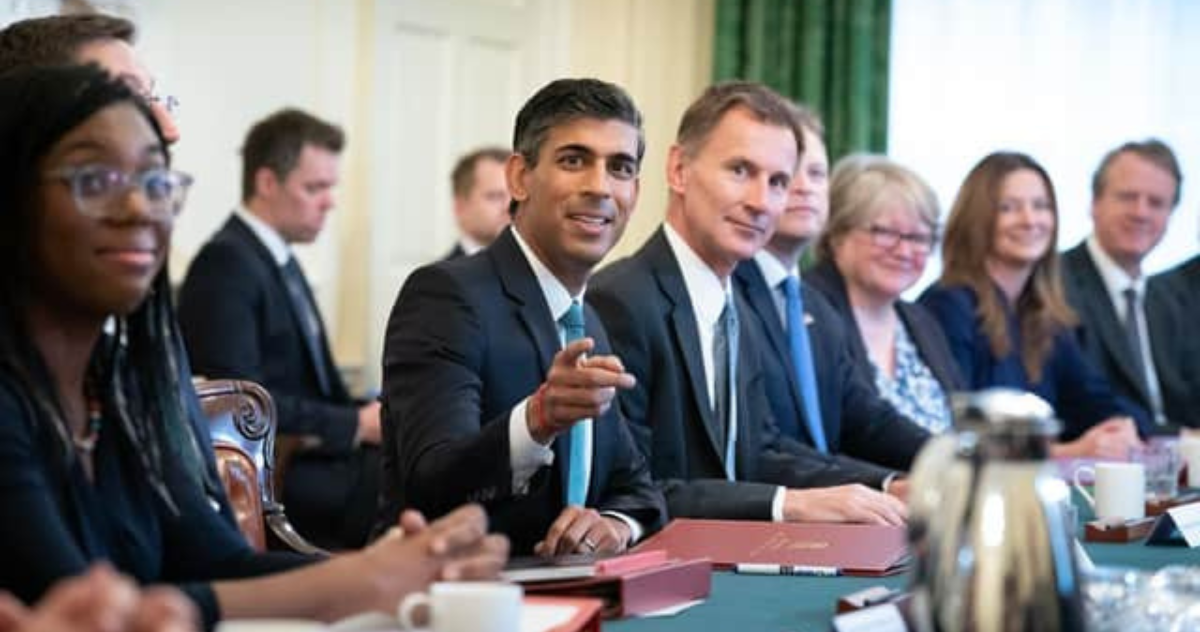UK (Parliament Politic Magazine) – Despite Rishi Sunak’s pledges to grow the UK economy, Britain has fallen into recession, challenging his economic agenda and promises
Rishi Sunak pledged to grow the UK economy shortly after he became prime minister.
Surprisingly, official figures affirm today that Britain fell into recession for the first time since the pandemic at the end of last year.
The findings are a massive disappointment for Rishi Sunak, who made growing the economy one of his five critical pledges to voters shortly after he entered 10 Downing Street. Mr. Sunak has only fulfilled one of its goals to halve inflation, which held steady at 4pc in January and is expected to halve again to 2pc in April.
The Office for National Statistics (ONS) stated the UK’s GDP dipped by a worse-than-expected 0.3% in the three months from October to December.
That tracks a 0.1% decline in the previous quarter, meeting the official definition of recession by a slim margin – two consecutive quarters of negative growth. Nevertheless, validating a slump is another massive blow to the credibility of Rishi Sunak, who made “grow the economy” one of his five pledges to voters at the start of 2023.
Today’s figures indicate that GDP fell 0.1% in December and pursued growth of 0.3% in November and a decline of 0.3% in October when a string of storms kept shoppers away from the high street.
The prevailing services sector, which accounts for 80% of Britain’s economic output, witnessed a contraction of 0.2%. The production sector, which contains manufacturing, was down 1.0%, while construction fell by 1.3%.
The economy has been struck by high interest rates and the cost of living squeeze, which has repressed consumer spending.
ONS Director of Economic Statistics Liz McKeown said, “Retail and wholesale were the most extensive overall downwards pulls on the economy in December, partially offset by computer programming and manufacturing growth.”
Chancellor Jeremy Hunt said: “High inflation is the most significant barrier to growth, which is why having it has been our top priority. While interest rates are high – so the Bank of England can bring inflation down – low growth is unsurprising.
“But there are signs the British economy is turning a corner; forecasters agree that growth will strengthen over the next few years, wages are rising faster than prices, mortgage rates are down, and unemployment remains low. Although times are tough for many families, we must stick to the plan – cutting taxes on work and business to build a stronger economy.”
The first Covid lockdown in the first half of 2020 triggered the previous recession in the UK. Outside of the pandemic, the last recession began in the second quarter of 2008 and lasted until the second quarter of 2009.
Growth is anticipated to return in 2024 but will remain below historic norms. The Government’s Office for Budget Responsibility forecasts growth of just 0.7% this year.
Susannah Streeter, head of money and markets at City firm Hargreaves Lansdown, stated: “It’s clear it’s going to be a hard slog before there’s a meaningful expansion in economic activity, given low productivity, lack of investment, and the numbers of long-term sick hitting record levels, leaving them out of potential employment.”
Read More: Tories Face Electoral Defeat with Rishi Sunak Failing 285 Seats
The GDP figure came as polls were extending for two by-elections, in Wellingborough and Kingswood, which the Tories could lose. If the Conservatives lose one or both of the contests, it would suggest the Government has clocked up more by-election defeats in a single Parliament than any Government since the 1966-70 Labour administration of Harold Wilson, which saw 15 losses. Labour has weathered difficult times in recent days, with at least two parliamentary candidates being suspended from the party, including Azhar Ali standing in Rochdale, after anti-Israel outbursts.


